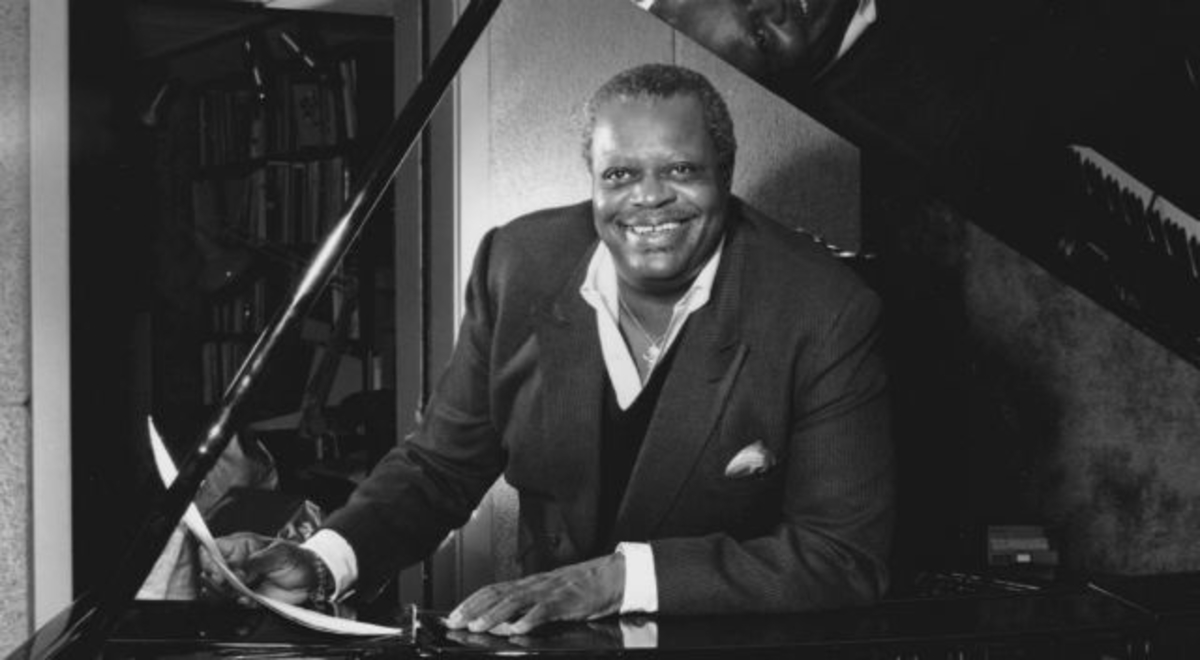February is Black History Month.
This month we celebrate history, achievements, and culture. From the talented and athletic to the innovative and creative, we proudly honour black Canadians who stood up for an equal, diverse, and multicultural Canada.
The History of Black History Month
- Black History Month originated in the United States, back in 1926, when Carter G. Woodson, a Harvard-educated African-American historian, proposed a week to devote to Black history. Black History Week would eventually become Black History Month in 1976 to coincide with the United States’ Bicentennial when it would be officially recognized by the US government.
- The United Kingdom was the second nation to recognize Black History Month, which started in 1987 through the organization and leadership of Ghanaian analyst, Akyaaba Addai-Sebo.
- In Canada, the first black Canadian woman elected to parliament, the Honourable Jean Augustine, carried a motion to officially recognize February as Black History Month which passed through the House of Commons unanimously in 1995.
Black Canadians in History
Mathieu de Costa was the first free black person recorded to set foot on Canadian soil in 1605. De Costa was hired as a translator by Samuel de Champlain who was navigating a voyage down the St Lawrence River to Acadia. De Costa was known as a multilingualist who spoke at least five languages including a dialect spoken by First Nations tribe Mic Mac. His memory is honoured at the Port-Royal National Historic Site in Port Royal, Annapolis County, Nova Scotia.
Mary Ann Shadd was the first African-American woman publisher in North America. She founded the Provincial Freeman abolitionist newspaper in 1853 after bravely fleeing Delaware to Windsor when the controversial Fugitive Slave Act was passed in 1850, an act that gave slave owners and their agents permission to track down and arrest fugitives anywhere in the United States. Shadd was an educated, articulate, and a courageous trailblazer.
Mifflin Gibbs was the first black politician in Canada, elected to the Victoria Town Council in 1866.
Anderson Abbot was the first black physician in Canada back in 1892 and one of only eight black surgeons in the Union Army during the American Civil War.
Viola Desmond challenged segregation laws after an incident that occurred during a trip to the movie theatre in 1946. She was arrested and thrown in jail for violating the theatre's segregated seating policy. Following the charges, Desmond courageously challenged racial segregation in Nova Scotia by taking her case to the Supreme Court. The attention Desmond brought to her outcry helped finally dismantle segregation laws. Viola Desmond will be the new face of the Canadian $10 bill in 2018.
Jazz pianist Oscar Peterson was one of Canada's highly regarded musicians with a career that blossomed in the 1950s and spanned nearly 65 years. Dr. Peterson was inducted into the Juno Hall of Fame, eventually won a Juno, earned eight Grammys, an International Hall of Fame award, and a myriad of other awards. He was made a Companion of the Order of Canada, the highest civilian honour in Canada, recognized for his effort in promoting human rights and fair treatment for Canada's multicultural community. He's a beloved Canadian icon, one of the greatest jazz pianists in the world, and will always be remembered for his legendary contributions to jazz.
The Toronto Caribbean Carnival (Caribana) was founded in Toronto, 1967. About two-thirds of Canada’s West Indian population resides in Toronto. The festival proudly displays its rich cultural traditions with pride.
Lincoln Alexander was the first black member of parliament and federal cabinet minister, holding the vice-regal position of Ontario’s lieutenant-governor in 1985.
Donovan Bailey was the first Canadian to win the 100-metre sprint at the world track championships 1995, becoming the world’s fastest human.
Michaelle Jean was the first Haitian-born Governor General of Canada, appointed in 2005.
Remembering Black History in Canada
1605
Mathieu de Costa was the first free black person recorded to set foot on Canadian soil. De Costa was hired as a translator by Samuel de Champlain who was navigating his ship down the St Lawrence River.
1685
The King of New France, Louis XIV, introduced a code to permit slavery for economic purposes. Back then, New France was a French colony in North America which today includes Montreal and spans the St Lawrence River, Newfoundland, and Nova Scotia.
1734
Marie-Joseph Angelique set fire to her master’s house in New France and destroyed nearly 50 homes. She was made an example of to the town, tortured and hanged.
1760
Britain conquered New France. Slaves were to remain slaves.
1793
Lieutenant Governor John Graves Simcoe introduced an Anti-Slave Trade Bill in light of the horrific beating of Chloe Cooley, a slave from Queenstown who was beaten and bound by her owner and sold to an American.
1799
Joseph Papineau presented a citizens’ petition asking the government to abolish slavery which prompted a series of anti-slavery measures and signifed a movement toward abolishing slavery in Lower Canada.
1812
Thousands of black volunteers heroically fought for the British in the War of 1812 against the Americans in fear of an American conquest and returning to slavery.
1815-1860
Tens and thousands of African-Americans sought refuge in Upper and Lower Canada through the Underground Railroad.
1819
Attorney General John Beverley Robinson built on Lieutenant Governor Simcoe’s bill and declared that by residing in Canada, black residents were set free and under the protection of British law.
1833
British parliament formally abolished slavery and freed nearly 800,000 slaves – though there were fewer than 50 in British North America by this time.
1850
American congress passed the Fugitive Slave Act which gave slave owners and their agents the right to track down and arrest “fugitive” slaves anywhere in the United States. Canadians were prompted to take a stand with a larger anti-slavery society in Canada.
1851
Toronto was chosen as the site for the North American Convention of Colored Freemen where hundreds of black people from all over Canada, the northern United States, and England were in attendance.
1853
Mary Ann Shadd fled Delaware to Windsor with her brother Issac after the Fugitive Slave Act was passed. Shadd was a founder of the abolitionist newspaper, the Provincial Freeman, and the first African-American woman publisher in North America.
1865
US President Abraham Lincoln was assassinated. Lincoln’s Emancipation Proclamation, issued in 1863, freed all slaves paving the way for abolition. Canadians mourned and an outpouring of anti-slavery sentiment prompted the nation.
1866
Mifflin Gibbs was the first black politician, elected to the Victoria Town Council.
1892
Anderson Abbot was the first black physician in Canada, one of only eight black surgeons in the Union Army during the American Civil War.
1913
Harriet Tubman died in New York. The heroic conductor of the Underground Railroad guided more than 300 slaves to freedom from the American South to Canada.
1944
Ontario passed the Racial Discrimination Act which prohibited the publication and display of any symbol, sign, or notice that expressed ethnic, racial, or religious discrimination.
Mid-1950s
Martin Luther King Jr.'s activism played a critical role in the Civil Rights Movement in the 1960s, which helped end segregation of African-Americans in the United States with non-violence. King Jr. created the Civil Rights Act of 1964 and the Voting Rights Act of 1965.
"The time is always right to do what is right."
- Martin Luther King, Jr.
1967
The Toronto Caribbean Carnival (Caribana) was founded in Toronto.
1967
Tom Kent, the deputy minister of immigration, established a points system to determine eligibility. The prior system relied solely on the judgment of the immigration officers.
1985
Lincoln Alexander was the first black member of parliament and federal Cabinet minister. Alexander held the vice-regal position of Ontario’s lieutenant-governor.
1992
The Rodney King LA riots reached Toronto’s Yonge Street.
1995
Donovan Bailey won the 100-metre sprint at the world track championships becoming the world’s fastest human, hailing from Oakville, Ontario.
2005
Michaelle Jean is the first Haitian-born Governor General of Canada.
2012
Advocacy group Black Lives Matter form in the United States revolutionizing the future of black history, campaigning internationally against systemic violence against all black people. Black Lives Matter have chapters across Canada.
Visit history and the ongoing history in Canada and celebrate our nation’s diversity. For all of 2017, we’re highlighting Canada with our monthly Celebrate Canada series featuring provinces and territories from coast to coast. Look out at the St. Lawrence River. See the Port-Royal National Historic Site in Port Royal, Nova Scotia. Imagine what Canada looked like when it was still Upper and Lower Canada.
Far and wide, this great nation is yours to discover.
For more information on historic sites to visit in Canada, connect with us online, visit us in-store, or reach us by calling 1-877-967-5302.






